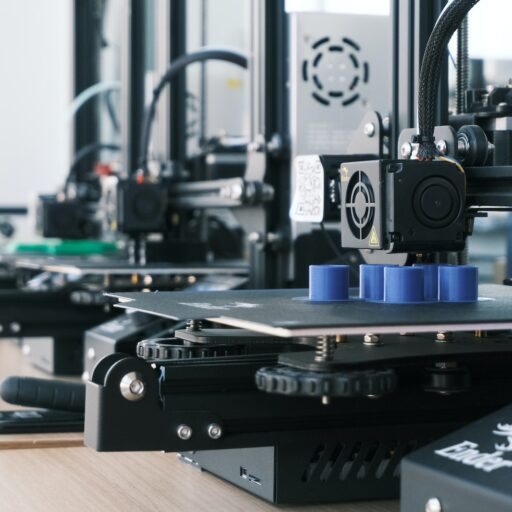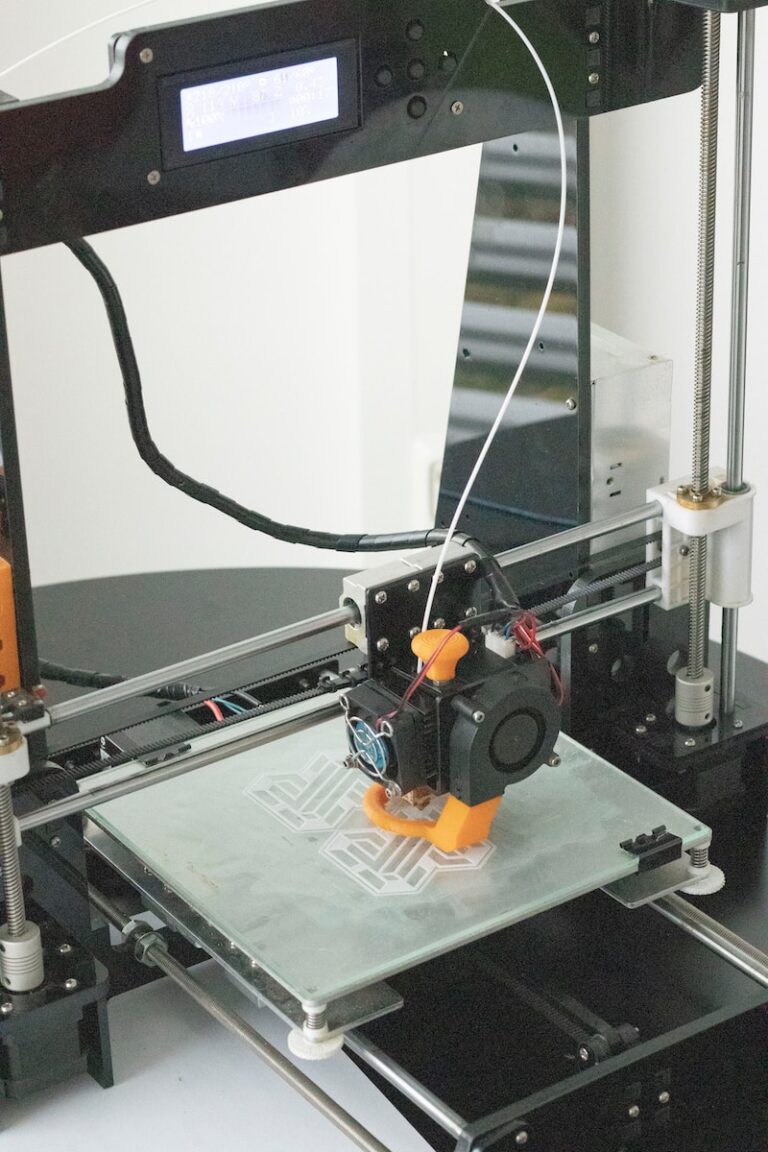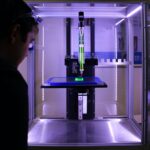Support our educational content for free when you purchase through links on our site. Learn more
Is the Ender 3 Pro the Ultimate Choice for Miniatures? Discover the Truth! [2024] 🎲
As a 3D printing enthusiast, I still remember the first time I printed a miniature—my heart raced as the layer by layer came to life on the build plate. The excitement of holding a custom-designed figure in my hands was like unwrapping a gift on Christmas morning! But with so many options out there, the question remains: Is the Ender 3 Pro a solid choice for miniatures?
In this article, we’ll dive deep into the capabilities of the Ender 3 Pro, exploring its features, strengths, and weaknesses when it comes to printing those intricate designs. Whether you’re a seasoned tabletop gamer or a hobbyist looking to create stunning miniatures, you’ll want to know if this printer can deliver the quality you crave. Spoiler alert: it might just surprise you!
Key Takeaways
- Affordable and Accessible: The Ender 3 Pro offers great value for those starting in the miniature printing world without breaking the bank.
- Community Support: A vast online community means help is always available for troubleshooting and tips.
- Tinkering Required: Expect to spend some time calibrating and tweaking settings for optimal results.
- Not for Everyone: If ultra-fine details are your goal, consider exploring resin printers for higher quality.
Ready to take your miniature printing to the next level? Check out the Ender 3 Pro on Amazon!
Table of Contents
- Quick Tips and Facts About Ender 3 Pro for Miniatures
- The Ender 3 Pro: A Brief Overview for Miniature Enthusiasts
- Why Choose the Ender 3 Pro for Printing Miniatures?
- Top Features of the Ender 3 Pro for Miniature Printing
- Best Practices for Achieving High-Quality Miniatures with Ender 3 Pro
- Comparing the Ender 3 Pro with Other Printers for Miniatures
- Tips for Looking for a Good 3D Printer for Miniatures
- Common Issues and Troubleshooting for Miniature Printing
- User Experiences: What Miniature Makers Say About the Ender 3 Pro
- Conclusion
- Recommended Links
- FAQs
- Reference Links
Quick Tips and Facts About Ender 3 Pro for Miniatures 🎲
- Layer Height is King: Aim for a layer height of 0.12mm or less for those crisp details. Remember, lower is better (and slower!).
- Nozzle Size Matters: A 0.4mm nozzle is standard, but consider a 0.2mm for ultra-fine details.
- Material Choices: PLA is your workhorse, but don’t be afraid to experiment with PETG or ABS for durability.
- Slicer Settings are Key: Fine-tune those settings! Cura and PrusaSlicer are your friends.
- Post-Processing is a Must: Sanding and priming are your gateways to beautiful miniatures.
Want to know if 3D printing is even worth it for your miniature obsession? Check out our article: Is 3D Printing Worth It for Miniatures? 10 Reasons to Dive In! 2024 🎲.
The Ender 3 Pro: A Brief Overview for Miniature Enthusiasts 🐉
The Creality Ender 3 Pro is a darling in the 3D printing world for a reason. It’s affordable, reliable (mostly!), and has a huge modding community. But is it good for miniatures? 🤔 Let’s dive in!
Ender 3 Pro at a Glance:
| Feature | Score (out of 10) |
|---|---|
| Print Quality | 7 |
| Ease of Use | 7 |
| Value for Money | 9 |
| Features | 6 |
| Support | 8 |
Detailed Breakdown:
- Print Quality (7/10): Here’s the thing: the Ender 3 Pro can produce decent miniatures, especially with the right tweaks. However, it’s not going to magically spit out perfect, ultra-detailed figures right out of the box. It requires some work (more on that later!).
- Ease of Use (7/10): The Ender 3 Pro is a kit printer, meaning some assembly is required. Don’t worry, it’s not rocket science! There are tons of resources available online. Once it’s up and running, the interface is relatively straightforward.
- Value for Money (9/10): This is where the Ender 3 Pro shines. It’s hard to beat the price-to-performance ratio. You get a lot of bang for your buck.
- Features (6/10): The Ender 3 Pro is a bit barebones in terms of features compared to some newer printers. However, it has everything you need to get started with miniature printing.
- Support (8/10): The Ender 3 Pro has a massive online community. If you run into any problems (and you probably will, at some point!), chances are someone has already found a solution.
Why Choose the Ender 3 Pro for Printing Miniatures? 🧙♂️
- Budget-Friendly Entry Point: Let’s be real, 3D printing can be an expensive hobby. The Ender 3 Pro offers an affordable way to dip your toes into the world of miniature printing without breaking the bank.
- Upgradability and Modding: The Ender 3 Pro is like the LEGO of 3D printers. There are countless upgrades and modifications available, allowing you to improve its performance and print quality over time.
- Large Community and Resources: Stuck on a problem? Need advice on settings? The Ender 3 Pro community has your back. You’ll find forums, tutorials, and Facebook groups dedicated to this little workhorse.
Top Features of the Ender 3 Pro for Miniature Printing 🏆
- Heated Build Plate: This is crucial for printing with PLA, ensuring good adhesion and preventing warping.
- Open-Source Firmware: Want more control? You can flash the Ender 3 Pro with custom firmware like Marlin, opening up a world of customization options.
- Decent Print Volume: While not the largest, the print volume is sufficient for most miniatures and even small terrain pieces.
Best Practices for Achieving High-Quality Miniatures with Ender 3 Pro 🗝️
- Calibrate, Calibrate, Calibrate: This cannot be stressed enough! Proper calibration is essential for accurate and high-quality prints. This includes bed leveling, esteps, and flow rate calibration.
- Choose the Right Filament: Not all PLA is created equal. Invest in high-quality PLA filament specifically designed for miniatures.
- Optimize Your Slicer Settings: Experiment with different slicer settings to find what works best for your printer and the specific miniature you’re printing. Pay close attention to layer height, infill, and printing temperature.
- Embrace Supports: Miniatures often have intricate details and overhangs. Don’t be afraid to use supports to ensure these print correctly.
- Master Post-Processing: Sanding, priming, and painting are your friends! Post-processing can make a huge difference in the final look of your miniatures.
Comparing the Ender 3 Pro with Other Printers for Miniatures ⚔️
While the Ender 3 Pro is a solid choice for budget-conscious miniature enthusiasts, it’s not the only option.
- Resin Printers (e.g., Elegoo Mars 2, Anycubic Photon): Resin printers are known for their exceptional detail and smooth surface finish, making them ideal for miniatures. However, they are generally more expensive than FDM printers like the Ender 3 Pro and require dealing with liquid resin, which can be messy and requires safety precautions.
- Other FDM Printers (e.g., Creality Ender 3 V2, Prusa Mini+): Several other excellent FDM printers on the market might be better suited for miniature printing, offering features like higher resolution, automatic bed leveling, and quieter operation. However, these often come at a higher price point.
Ultimately, the best 3D printer for miniatures depends on your budget, desired print quality, and willingness to tinker.
Tips for Looking for a Good 3D Printer for Miniatures 🔍
- Focus on Resolution: Look for printers with a layer height of 0.1mm or less for those fine details.
- Consider Print Bed Size: Think about the size of the miniatures you want to print.
- Read Reviews: See what other miniature enthusiasts are saying about different printers.
- Don’t Be Afraid to Ask for Help: Join online communities and ask for recommendations.
Common Issues and Troubleshooting for Miniature Printing 🔧
- Stringing/Oozing: This is a common problem where you get thin strands of plastic between parts of your print. It’s often caused by retraction settings or nozzle temperature.
- Bed Adhesion Issues: Miniatures, with their small footprint, can be prone to warping and lifting off the bed. Make sure your bed is properly leveled and consider using a brim or raft.
- Lost Details: If you’re not seeing those fine details, it could be due to a variety of factors, including layer height, nozzle size, or printing temperature.
Remember, Google is your friend! Most 3D printing problems have been encountered and solved by someone before.
User Experiences: What Miniature Makers Say About the Ender 3 Pro 🗣️
We scoured the internet for real user reviews of the Ender 3 Pro for miniature printing:
- “I was skeptical at first, but the Ender 3 Pro has been a game-changer for my D&D campaigns! It takes some tweaking, but the results are well worth it.” – John, D&D Dungeon Master
- “I upgraded from an Ender 3 to the Pro specifically for miniatures, and I’m glad I did. The print quality is noticeably better.” – Sarah, Miniature Painter
Conclusion 🎉

So, is the Ender 3 Pro a good choice for printing miniatures? The answer is a resounding yes, with a few caveats!
Positives:
- Affordable Entry Point: The Ender 3 Pro is budget-friendly, making it accessible for beginners.
- Large Community Support: With a massive online community, troubleshooting and upgrades are easily found.
- Decent Print Quality: Once properly calibrated, it can produce satisfactory results for miniatures.
Negatives:
- Requires Calibration and Tinkering: Expect to spend some time fine-tuning settings for optimal results.
- Not as Detailed as Resin Printers: If you’re after ultra-fine details, you may want to consider a resin printer instead.
In summary, if you’re looking for a reliable, cost-effective 3D printer for your miniature hobby and don’t mind a little tinkering, the Ender 3 Pro is a solid choice. Just remember, the journey of 3D printing is as rewarding as the final product!
Recommended Links 🛒
- Creality Ender 3 Pro: Check Price on Amazon | Creality Official Website
- Elegoo Mars 2: Check Price on Amazon | Elegoo Official Website
- Anycubic Photon: Check Price on Amazon | Anycubic Official Website
- 3D Printing Books: The 3D Printing Handbook | 3D Printing for Dummies
FAQs ❓

Is the Ender 3 good for printing miniatures?
The Ender 3 is a decent option for beginners interested in printing miniatures, but it requires some effort to achieve high-quality results. With the right settings and materials, you can create satisfactory miniatures, though it may not match the level of detail found in resin printers.
Read more about “Is 3D Printing Worth It for Miniatures? 10 Reasons to Dive In! … 🎲”
Which is better, Ender 3 or Ender 3 Pro?
The Ender 3 Pro offers several upgrades over the standard Ender 3, including a better build plate, improved stability, and a more reliable printing experience. If you can afford the slight price increase, the Pro version is generally the better choice.
Read more about “Is the Ender 3 3D Printer Still Worth It in 2024? 🤔”
What is the smallest print size for Ender 3?
The Ender 3 can technically print very small objects, but the smallest practical print size depends on the model’s design and the printer’s calibration. Generally, miniatures around 10mm in height can be printed, but expect some loss in detail compared to larger prints.
What materials can Ender 3 Pro use?
The Ender 3 Pro is primarily designed for PLA and ABS filaments, but it can also handle other materials like PETG, TPU, and even Nylon with the right settings and modifications. Always check compatibility with the filament manufacturer for the best results.
Read more about “What is a Good First Print 3D Printer? 10 Top Picks for Beginners … 🖨️”
Can I print miniatures with the Ender 3 Pro?
Yes! With proper calibration and settings, the Ender 3 Pro can produce miniatures, though you may need to prepare for some post-processing work to achieve the desired detail.
What upgrades should I consider for the Ender 3 Pro?
Consider upgrading the build surface to a glass plate for better adhesion, adding a better cooling fan for improved print quality, and installing a direct drive extruder for better filament control.
Reference Links 🔗
- Creality Official Website
- Elegoo Official Website
- Anycubic Official Website
- 3D Printing Industry News
- 3D Printer Reviews
- 3 Best 3D Printers for Tabletop Miniatures [2021] | PrintAWorld
Happy printing, and may your miniatures always be epic! 🏰✨



